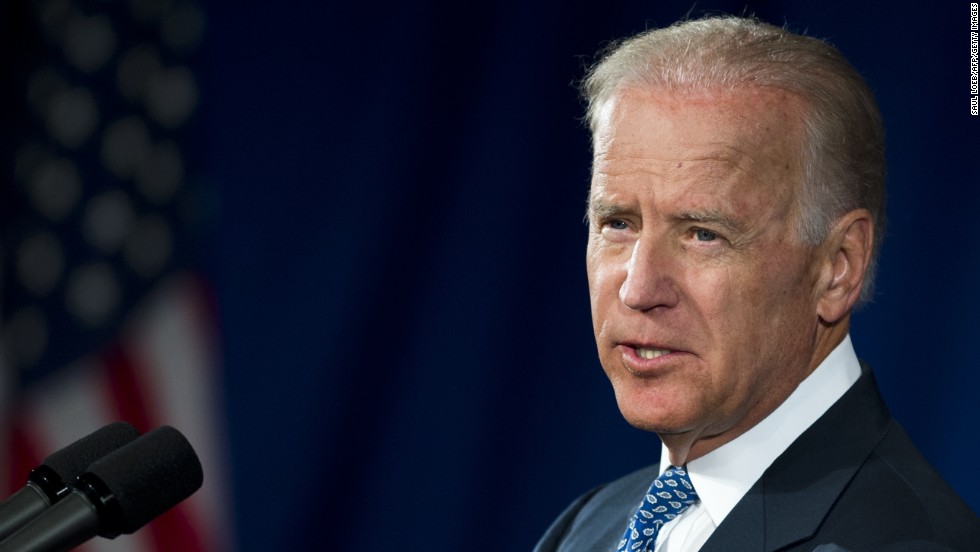Why Joe Biden should not run
Vice President Joe Biden's final decision on whether to run for president is fast approaching. If he were to run, Biden would need to meet crucial filing deadlines to get on the ballot, set up a viable organization and raise money.
Most insiders have concluded that the vice president remains genuinely undecided. Most important, he is not sure whether he has the personal strength so soon after his son's tragic death to go through with this grueling process.
Though it is a difficult decision, Biden should not run.

Julian Zelizer
A number of party officials and political observers remain excited about the possibility, particularly after the moving interview that he gave with Stephen Colbert. With serious doubts about whether voters will ever connect to Hillary Clinton, they see Biden as one of the few politicians who voters actually like.
Given the very difficult summer that Clinton has experienced with the email investigation, the temptation to find someone new is strong.
But a run by the vice president would cause immense problems for the party and threaten his own legacy. Thus far, the primary competition has been a good one for the party. Sen. Bernie Sanders' challenge to Clinton has been the ideal kind of intraparty competition: Sanders had triggered a much needed debate over key issues, such as economic inequality, and energized key portions of the party electorate.
As a result of his entering the race, Clinton has given much more attention to issues like the power of money in politics than would probably have been the case without him. It forced her to think harder about her campaign organization and strategy before the competition seriously gets underway.
A Biden candidacy would not have the same effect. His base of support would be remarkably similar to Hillary Clinton. Biden, also a product of post-1960s Democratic politics and someone who is closely tied to the current administration, would promote a very similar set of themes as his chief opponent.
The result would be a bitter campaign that could quickly veer into personal politics. Rather than a competition to broaden and energize the electorate, this would be a campaign about dividing constituencies. It would sew intense bitterness within a Democratic Party that right now should be starting to focus their excitement behind a candidate and targeting their anger toward the GOP.
A Biden candidacy would also accelerate the campaign spending wars since Clinton would face much stiffer competition in key primary battleground states where Biden is likely to have strong appeal. The problem of money and politics has already been a huge one for both parties. It is difficult for Democrats to appeal to the middle class when they engage in campaign fund raising and Super PAC politics with rooms full of one percenters.
Nor is it clear that Biden would be a particularly strong candidate. Biden is a great politician, and he has been extremely effective as a senator and as vice president. But it is important to remember that when he ran for president in previous years he fared poorly.
In 1988 and 2008, he was a failed candidate. He did not generate mass political appeal and his stumbles on the campaign trail were legendary. He also has a history of close ties with the financial industry that would not sit well with much of the electorate.
He has a controversial policy record that would sour many Democrats, including his positions on criminal justice in the 1990s, as well as his checkered past on the war in Iraq. This aspect of foreign policy has already been a big challenge for Clinton.
His record in the Clarence Thomas confirmation hearings, when he was chair of the Senate Judiciary Committee, is also unlikely to sit well with many Democrats, including women voters. As chair, he allowed a group of Republicans to slander Anita Hill when she came forward with shocking accusations of sexual harassment.
Every potential candidate looks like a white knight before being exposed to the glare of the campaign.
The tragedy for Biden would be if this run actually hurts his overall legacy. After years where he has been an extremely influential vice president who has served as a champion for the middle class and a model of how the person in the office can help build relations with Capitol Hill, Biden could end his time as a divisive figure in the Democratic Party who helped clear the way for a Republican victory.
Clinton has certainly stumbled in recent months but she also has a very formidable campaign operation in place, with polls that still point to many areas of strength over other candidates and a grassroots mobilization in a number of primary states that will be hard to overcome when Americans actually start to vote and stop just talking about it.
The appeal of Joe Biden, one of the most likeable and personable figures in American politics, should not outweigh the overall needs of the party and a realistic assessment of the chances that he has to win the nomination. The Sanders campaign has had a positive effect for the Democrats, breathing some life into the party and pressing the major candidate to deal with crucial issues.
It is not at all clear that Biden entering the campaign would have the same impact.
If Biden announces that he won't run, he could be an incredibly important figure in a Democratic victory. He could greatly benefit Clinton on the campaign trail, helping her to energize nervous Democrats and to point to the successes of the current administration without having to suffer from all the baggage.
Rather than being a spoiler who opens up more wounds within a party trying to rebound, he could be the player who helps Hillary Clinton bring together the coalition that keeps the White House in Democratic hands.
News Courtesy: www.cnn.com











